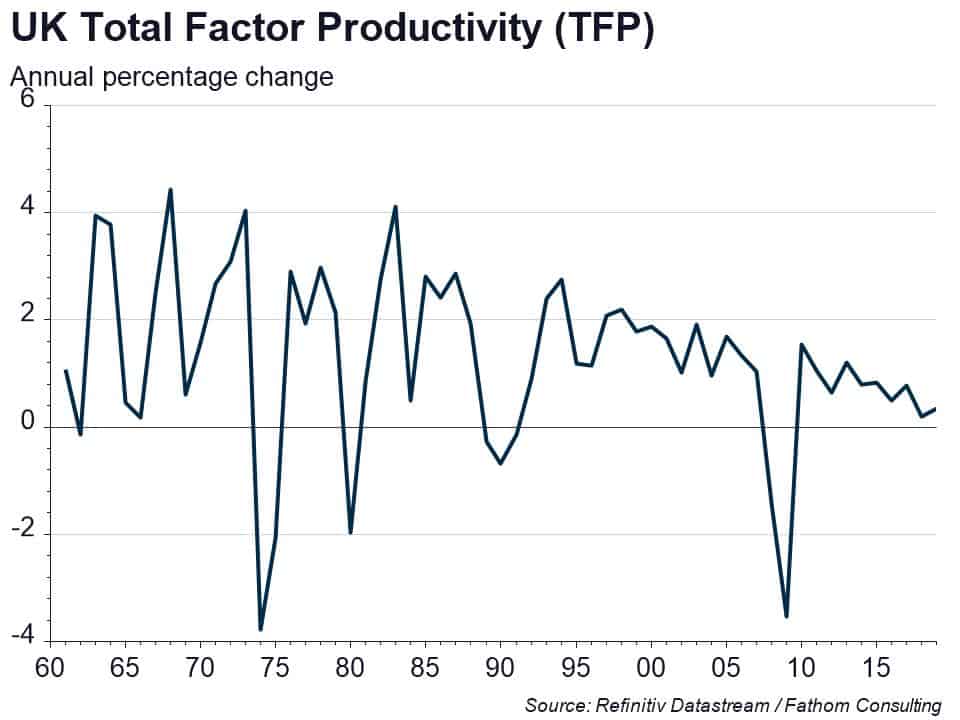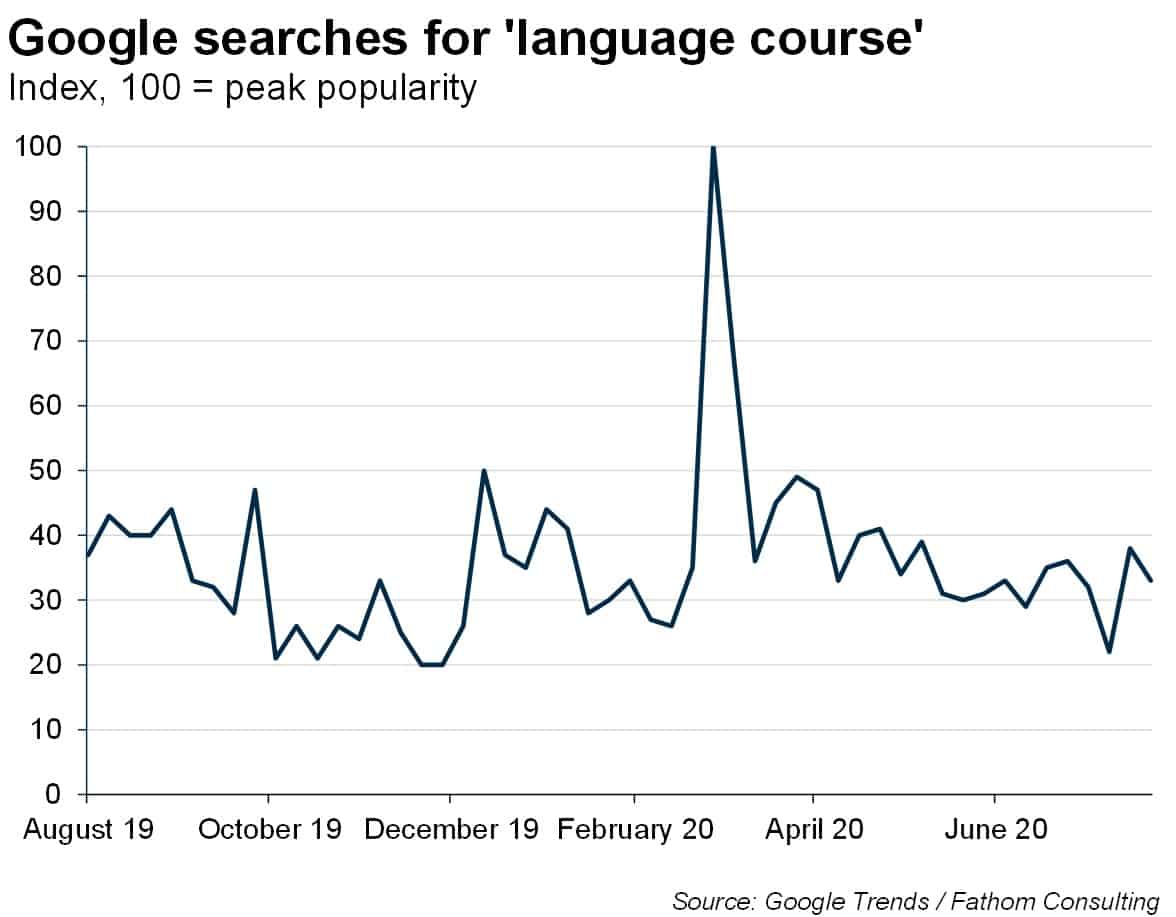A sideways look at economics
Many of us are entering a new normal where working from home is the standard, and spending hours of our day mindlessly commuting is a thing of the past. This has increased the amount of time at home people have to drink beer and binge-watch their favourite Netflix show (Below Deck in my case). The enjoyment we derive from killing our brain cells with these reality TV shows might be sufficient justification for this new way of working, but what if we could also use this time to help solve one of the most problematic economic issues? Productivity growth.
Advanced economies across the world have been battling the productivity puzzle since at least the early 2000s. The UK is one of the nations hardest hit by this, having seen growth in productivity stall, and lag behind other countries such as the US. Due to the impact that low productivity growth can have on longer-term economic growth, economists have long been searching for ways to boost productivity into the future.
Straight from macroeconomics 101, aggregate output can be expressed by a production function, where in a simplified world, output is determined by human capital (H), volume of labour (L), capital (K) and a residual (A). This is one of many production functions that could explain aggregate output, and it’s worth noting that there is great debate about which is the most appropriate functional form. In this form, the residual represents the increase in total production which can’t be account for by the increase in inputs, or human capital alone. This blog will discuss how lockdown and the subsequent push to work from home can increase the human capital of the nation.
f (H,L,K) = Y = AHαL βK(1-α-β)
One trend resulting from the growing time spent at home is the growth in the popularity of online courses to pass the time. Online learning centres, such as Udemy or edX host a huge variety of courses, from programming to fashion blogging. Data from Google Trends show that searches for online courses across the UK picked up over lockdown, and are still above the pre-COVID trend. Some trends were more short-lived than others, such as language courses, which I myself may have contributed to (I have to confess I only made it to “hola, me llamo Ellie”). However, if this increase in upskilling through online courses continues, it may be possible to increase our knowledge and skillset, and thus our human capital. This is just one of many potential avenues for productivity gains from working from home, as set out in a previous TFiF.
At Fathom, we’re constantly searching for ways to work more efficiently. For example, thanks to the help from online learning centres and of course Fathom’s data scientists, many across the firm are slowly learning to utilise R-studio on a more regular basis. We even wrote about how we have transitioned our FVI away from excel and to R-studio in a previous blog post. Although time-consuming at first, transitions like this should reward us with massive efficiency gains in the future (we hope). A large proportion of manual work can now be completed with the click of a button, thus improving the efficiency of our capital and labour. Improving our computer coding is just the start, with Fathom also engaging in in-house seminars, where we learn from each other. The company is investing in our training, and should reap the rewards of this in the future.
Due to the marvels of 21st century technology, learning from others is no longer constrained to who you’re acquainted with, or who you work for. Online courses offer a world of possibilities, and the data show that there’s an increasing demand for this. Acknowledging how rewarding the online courses I completed over lockdown were (in finance and R-studio, but sadly not Spanish), it got me thinking. With many people having more hours in the day, if some of this time could be devoted to learning new skills, could the country be more productive?
Like any decision, this involves a trade-off. We have been given an endowment of extra time; we can either invest it by studying more, to earn more in the future, or we can spend it now, having fun. This is one of the fundamental questions of economics. How much do we spend now, to have fun now, and how much do we store away to have more fun in the future? It all depends on your rate of time preference, and how much you value watching Below Deck and subsequently dreaming of giving up the day job and becoming a full time yachtie.[1] I would normally have a three-hour round-trip commute. Being realistic, I’m not going to spend all my extra time upskilling and engaging in online courses. However, I’d like to strike a balance between learning and enjoying my leisure time. Could an hour a day could keep the productivity slump away?
[1] To my manager: this is not a serious five-year plan.


